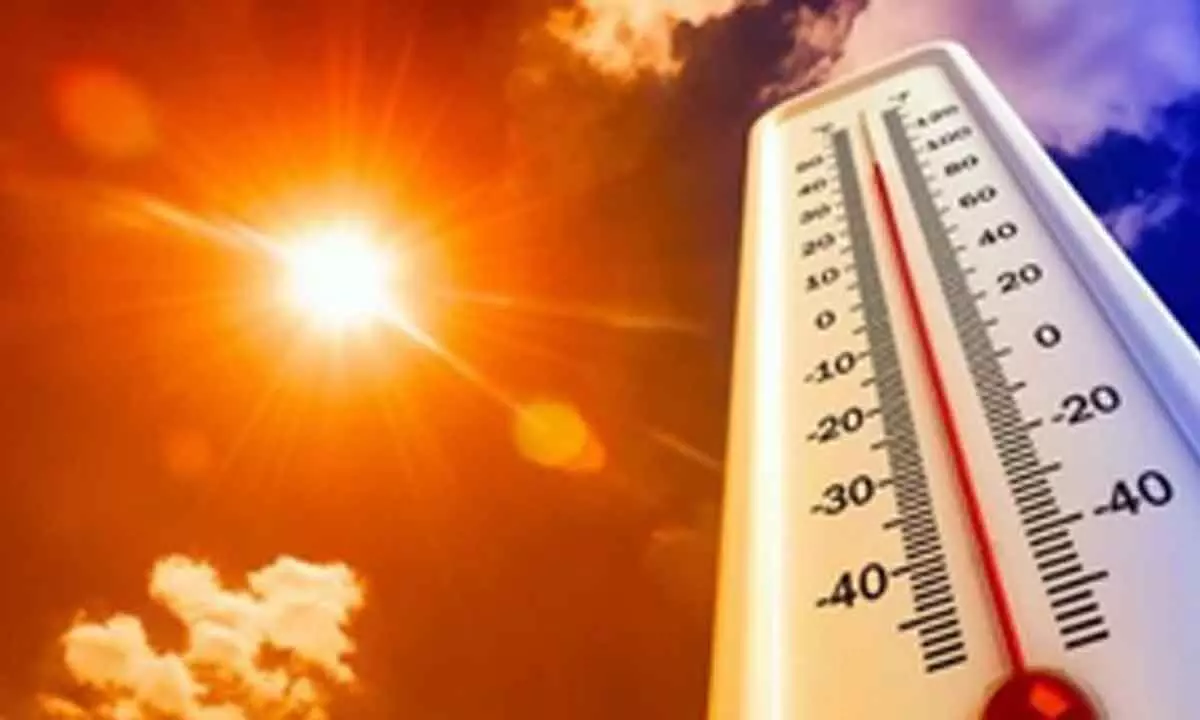Heat wave scorches US, bringing record-breaking temperatures

An intensive heat wave continued to grip much of the United States this weekend, triggering record-breaking temperatures and placing millions of people under heat alerts.
"A heat wave will continue over much of the eastern US south of a quasi-stationary boundary," the Weather Prediction Center (WPC) said on Saturday.
"These temperatures remain the most anomalous and dangerous for early summer over portions of the Midwest/Ohio Valley east to the Mid-Atlantic," the WPC said, according to Xinhua news agency.
"Conditions will remain hot from central to southern California," it said, adding that "Highs on Sunday and Monday will range in the mid to upper 100s (degrees Fahrenheit)."
More than 115 million people across the United States are currently under active National Weather Service (NWS) extreme heat alerts, according to the National Integrated Heat Health Information System on Saturday.
A heat dome, caused by a high-pressure system trapping hot air near the ground, has settled over the Midwest and Northeast early this week, causing record-breaking temperatures in several cities. Phoenix, the capital of Arizona, has already experienced its hottest days of 2024 so far, with temperatures soaring to 115 degrees Fahrenheit (46 degrees Celsius) this week. The first 19 days of June are the hottest on record for Phoenix. The average temperature in the city is 95.1 degrees Fahrenheit (35 degrees Celsius) this year, the hottest year out of 129 years of records, according to local news outlet Arizona's Family.
This extreme heat has claimed the lives of at least six people, with another 87 deaths under investigation for potential heat-related causes, said the Maricopa County Public Health Department in the latest heat surveillance report on June 15.
Last year, Maricopa County, where Phoenix is located, experienced a devastating 645 heat-related deaths, a sharp increase from the 425 confirmed deaths for 2022, according to the county's 2023 heat-related death report.
Much of California is also under heat advisories. These soaring temperatures will affect major cities like Los Angeles, San Diego, and San Francisco.
The NWS issued a heat advisory for Southern California, which is in effect till Sunday night. The advisory warns that temperatures are expected to reach up 90 to 100 degrees Fahrenheit (32.2 degrees Celsius to 37.8 degrees Celsius) and "hot temperatures may cause heat illnesses."
The agency also noted that the temperature in Northern California's Sacramento Valley could reach 107 degrees Fahrenheit (41.7 degrees Celsius). This heat wave exacerbates the already challenging wildfire season in California, where dry and windy conditions have fueled several large fires. Despite progress in containing some blazes, the forecast high temperatures for the weekend are expected to hinder ongoing efforts to combat wildfires that have already burned thousands of acres across the state, reported Xinhua news agency.
Wildfires have burned over 99,000 acres (about 400 square km) so far this year in California, according to the current emergency incidents data of the California Department of Forestry and Fire Protection.
On the eastern side, New York City is bracing for potentially the longest stretch of 90-degree Fahrenheit (about 32-degree Celsius) days in June on record, prompting the NWS to issue a heat advisory which is in effect till Sunday night.
Philadelphia, the largest city in Pennsylvania, has extended a heat health emergency through midnight on Sunday, according to the city's Department of Public Health. Washington DC is also facing a heat emergency, with temperatures expected to exceed 100 degrees Fahrenheit (about 38 degrees Celsius) on Sunday. It would surpass the previous record set in the 1980s and be the first time the district has reached triple digits since 2016, according to AccuWeather.









